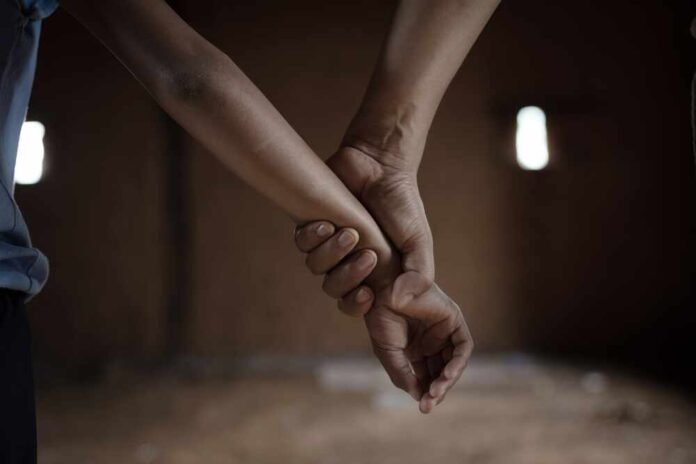
In a move that confounds basic common sense, California’s State Assembly, predominantly Democratic, has stalled a bill aiming to reclassify child trafficking as a serious felony. The proposed legislation introduced by state Sen. Shannon Grove (R), was designed to put child trafficking crimes in a similar category as other heinous crimes such as murder, arson, and serious assaults. Instead of moving forward to the Assembly, the bill now lingers in uncertainty.
In the Golden State, while most residents would assume that child trafficking merits felony status, the Assembly’s Appropriations Committee moved the bill into the “suspense file.” As Sacramento’s CapRadio reported, this parliamentary procedure offers a cover to kill some bills without the need for public debate. Former state Sen. Melissa Melendez (R) coined a more explicit descriptor for this practice: “legislative purgatory.”
Emerging from this “purgatory” entails surviving a clandestine meeting with influential legislators. As one former lawmaker confided to CapRadio, “Behind closed doors, the appropriations chair—and, to some extent, the top leaders in each legislative chamber—have final say on which bills pass and which ones are retained.”
Keep a close eye on CALIFORNIAs legislature regarding child trafficking
– These people have got to be Satan's Soldiers!@CaliRN619@Cali_Cris1@cali_beachangel
Why California Assembly Democrats blocked a child trafficking bill and why they reversed course https://t.co/UrkKRBN29O— ★彡 𝐍𝐞𝐰𝐓𝐫𝐮𝐭𝐡𝟔𝟒 彡★ (@NewTruth64) August 17, 2023
Grove expressed her dismay at the financial reservations surrounding the legislation. Addressing the Assembly Appropriations Committee, she fervently stated, “There’s no price tag that can be placed on a victim of human trafficking, especially a child.” Using chilling words, she described the crime as “so grotesque, immoral and barbaric; it should be prevented and stopped at any cost.”
Grove’s passion for the issue isn’t mere rhetoric. She underlined California’s regrettable rank as one of the top states in the U.S. for human trafficking, with many victims being minors subjected to illegal physical and labor exploitation.
One can’t help but wonder at the hesitancy surrounding such a vital piece of legislation. The bill, after all, had smoothly passed the state Senate earlier. Its journey through the Assembly, however, has been turbulent. The Assembly Public Safety Committee’s initial decision to block the bill faced massive public criticism, leading to an about-face — only for the bill to be again sidelined.
The American Civil Liberties Union’s California arm has voiced concerns about the potential repercussions of the bill. They argued that the proposed legislation might unintentionally criminalize child trafficking victims, necessitating further allocations for the state’s prison system. Duke Cooney, an advocate for the ACLU, pointed out instances where “survivors are often forced to commit crimes by their traffickers, and they’re misidentified as traffickers by law enforcement.”
Yet, for many, these concerns don’t outweigh the immediate need to fortify the state’s stance against traffickers. In a heartfelt appeal, Briana Moseley, a witness brought forward by Grove, shared the tragic tale of her sister, a victim of trafficking. She revealed the painful aftermath of her sister’s ordeal, culminating in her untimely demise.
As state Assemblyman Chris Holden (D) acknowledged the courage of these witnesses, the general sentiment remains: Why is the Assembly stalling a law that, in the eyes of many, is long overdue? The drawn-out debate only magnifies the perception of California’s Democratic lawmakers as disconnected from their constituents.
For Californians hoping for swift action against child trafficking, the ball remains firmly in the Assembly’s court. Whether they choose to advance the bill or let it languish will undeniably reflect on their commitment to safeguarding the state’s children.













